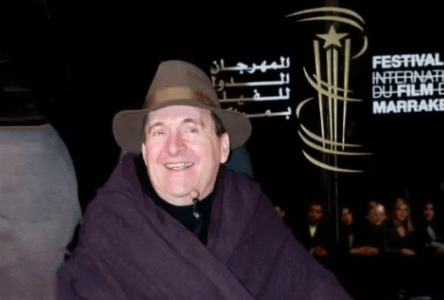Philippe Pozzo di Borgo’s net worth, estimated at $25 million in 2025, is a mosaic of Champagne customs, literary accomplishments, and a tale that has universal appeal rather than just being a reflection of inherited wealth. His time as Pommery’s director laid the groundwork for his financial security, but his memoir and the ensuing motion picture versions were what turned his fortune into a story much bigger than money. His tale serves as an example of how perseverance can turn tragedy into a legacy that transcends statistics.

Philippe was born in Tunisia on February 14, 1951, and came into the world with aristocratic distinction. He inherited not only wealth but also the burden of history as the son of the Duke Pozzo di Borgo and the Marquis de Vogüé. He entered the Champagne business through his education, honing his craft at Moët & Chandon before taking charge at Pommery. Although this position brought him wealth and prestige, fate would put him to the ultimate test in terrible ways.
Philippe Pozzo di Borgo – Personal, Career, and Financial Overview
| Category | Information |
|---|---|
| Full Name | Philippe Pozzo di Borgo |
| Date of Birth | February 14, 1951 |
| Age (2025) | 74 years |
| Birthplace | Tunis, Tunisia |
| Nationality | French |
| Occupation | Businessman, Author |
| Known For | Former Director of Pommery; Author of Le Second Souffle |
| Net Worth | $25 million |
| Residence | Essaouira, Morocco |
| Parents | Duke Pozzo di Borgo, Marquis de Vogüé |
| Education | Graduate, later worked at Moët & Chandon |
| Height/Weight | 5 ft 8 in / 62 kg |
| Marital Status | Married to Khadija Najimi (previously married to Béatrice Henriette Lucie) |
| Children | Five (two adopted with first wife, three with second wife) |
| Reference |
Philippe was paragliding in the Swiss Alps in 1993 when he had an accident that left him quadriplegic with diabetes. He then went through a period of extreme despair during which he even made an attempt at suicide. However, it was in this chapter that his life took a turn for the better in terms of effectiveness. His memoir, Le Second Souffle, revolves around the extraordinary friendship he formed with Abdel Sellou, a caregiver from a very different background.
The impact of the book was particularly evident because it demonstrated that dignity and humor can coexist with suffering. Following its international success as a French film, The Intouchables, it was remade in Hollywood as The Upside, starring Bryan Cranston and Kevin Hart. Through royalties, these cultural landmarks significantly raised Philippe’s financial status and increased his visibility in conversations about disability, resiliency, and friendship. His story’s reach was remarkably comparable to that of Stephen Hawking and Jean-Dominique Bauby, two people whose individual hardships altered how the world views talent and the human spirit.
Family continued to be both a source of solace and heartache. After years of miscarriages, Philippe married Béatrice Henriette Lucie in 1973, and the two of them adopted two children. Three years after Philippe’s accident, tragedy struck again when Béatrice passed away from cancer. Later, he and Khadija Najimi rebuilt their lives in Morocco, where they raised three kids together. After experiencing hardship, his family found balance in their home in Essaouira, which turned into a place of renewal. His wealth is enhanced by this private chapter because relationships are often a better indicator of wealth than money.
His later years were characterized by health issues. Philippe needed physiotherapy and careful dietary management because he was 5′ 8″ and weighed 62 kg. Due to his diabetes, he was only allowed to eat wholesome, low-carb meals that were closely monitored. Nevertheless, his capacity to project resilience proved especially helpful for communities dealing with disabilities, providing a model of tenacity when life drastically curtailed one’s physical liberties.
It is important to remember his association with Pommery. For a very long time, champagne has represented sophistication, festivity, and cultural identity. In his capacity as director, Philippe safeguarded its legacy, guaranteeing the survival of a French-tradition-based brand. In this way, his art was immensely adaptable, connecting his family’s aristocratic heritage with the general public’s interest in luxury and culture.
It is impossible to overestimate the social impact of his story. Philippe dispelled misconceptions about caregiving by illustrating his relationship with Abdel Sellou and demonstrating that loyalty and humor can flourish in unexpected places. The film’s widespread popularity demonstrated how powerful storytelling can be in altering perceptions when it is based in reality. Across continents, audiences learned that disability is not only a limitation but also a platform for the best aspects of humanity.
Naturally, comparisons to other individuals who transformed personal adversity into inspiration for society are made. While Stephen Hawking, confined to a wheelchair, redefined scientific achievement, Philippe’s lived experience changed ideas of companionship and dignity. Despite working in very different fields, both men showed that intellectual, emotional, and spiritual contributions enhance human worth rather than physical limitations.
